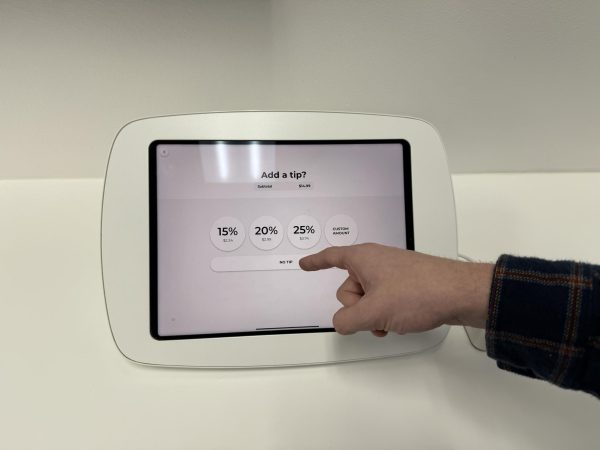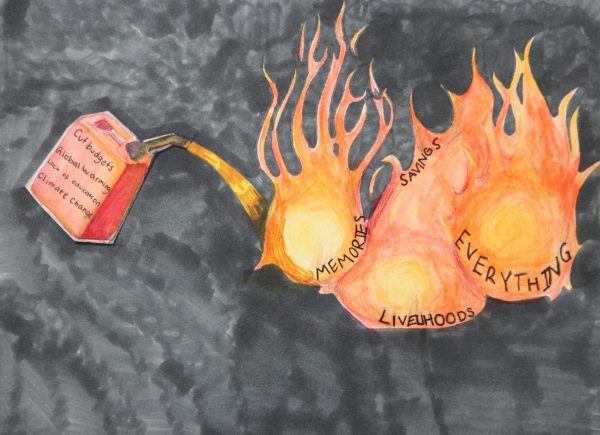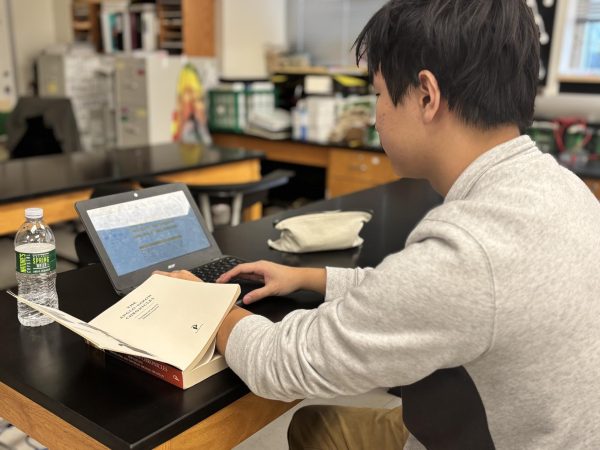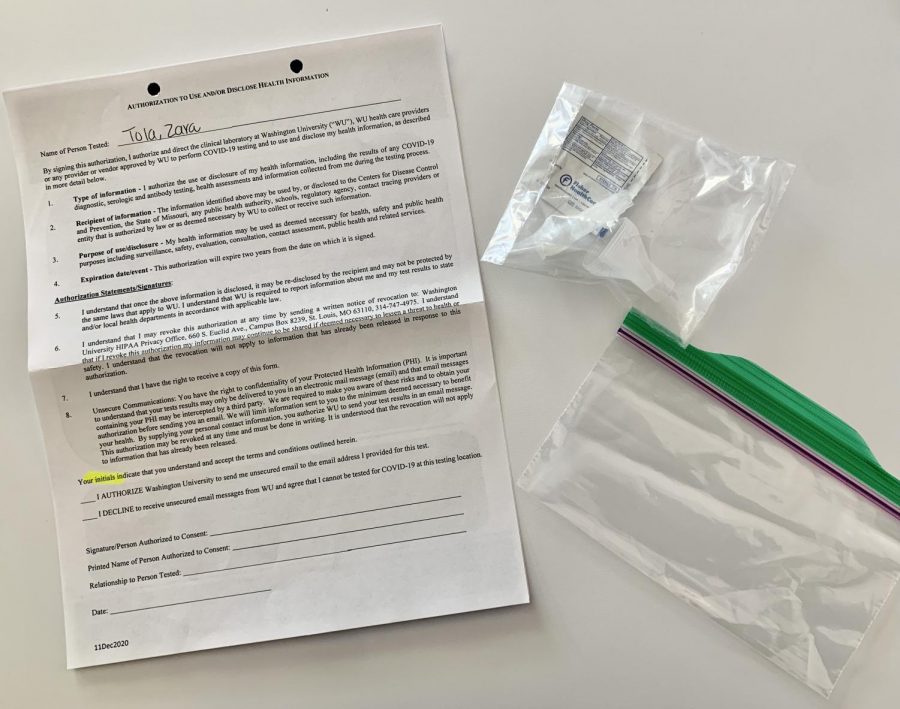Contact Traced: Participating in a COVID-19 Study
Media by Zara Tola
When tested for COVID-19 with the Washington University saliva test, workers will schedule a time to come to your house to administer the test. The recipient of the test will not be able to eat or drink 30 minutes before the test, and will be given materials for the test, collection tube, funnel, privacy form, once workers arrive at their home.
The only good thing to come out of being contact traced is the fact that I get to help researchers find out more about the coronavirus.
RSD has currently chosen to be a part of a COVID-19 study by the Missouri Department of Public Health, Washington University, Saint Louis University and the Centers for Disease Control and Prevention.
This study investigates people who have tested positive for COVID-19 or who have been contact traced in order to examine how the virus spreads in schools. Results from this study will allow current guidelines to be updated as needed.
Once I knew I was eligible to participate in the study, I jumped at the chance. I wanted to do anything I could to help researchers learn more about COVID-19. I am also genuinely interested in the science behind the coronavirus, and I finally had a chance to contribute to the research.
This past Thursday, I began to take part in the study after someone involved called me to start the first step in the process: the questionnaire. The researchers asked me about how much I social distance or wear a mask, how many people live in my house, if I had been to a gathering recently, if I had eaten at a restaurant in the past couple of weeks, among other things.
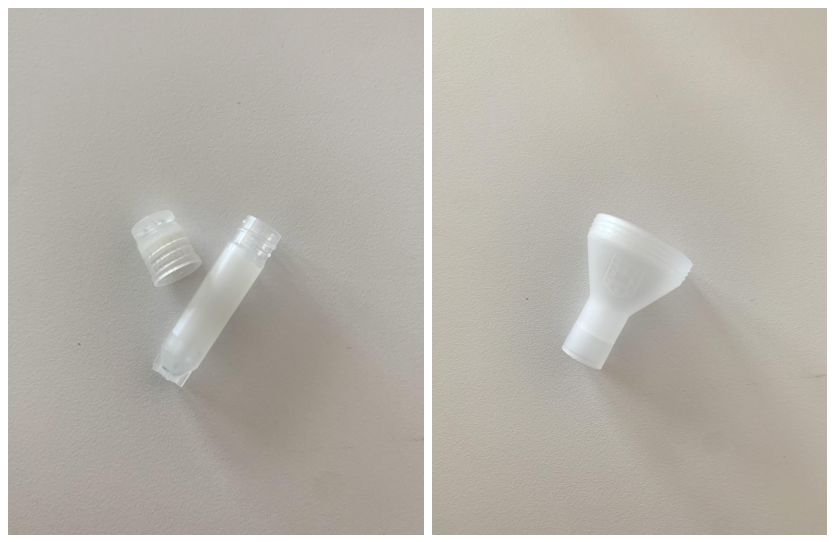
After this, a personalized link would be sent to my email every day during my time participating in the study, so I could record any new symptoms I may be feeling for that day.
On Friday, some workers from the study came to my house to administer the saliva test, which will tell me in about three days whether I am COVID-positive. Although I was already tested earlier, there is a chance that test could’ve been a false negative, so this test will again reveal whether I did get COVID-19 after being exposed.
To do the saliva test, I abstained from eating or drinking anything for about half an hour before taking the test. The workers contacted my mom ahead of time to let us know they would come around 10:30 a.m. to do the test, so I could be prepared.
Upon arrival, two workers parked across from my house and prepared to administer the test by putting on personal protective equipment before walking up to my front door. I stayed in my house, but as they approached, I stepped out onto my front porch — mask on — to meet them for the test.
With more than six-feet distance between us, a woman greeted me and told me everything I needed to know about the study. I awkwardly stood there, getting some weird side glances from passersby, as she confirmed some of what I already told them over the phone, like my birthday and that I already had a previous COVID-19 test. She then went over how I would do the test.
They gave me a closed bag filled with a collection tube and a lid, a funnel and a sanitary wipe, along with a medical privacy form and a second empty bag. To do the test, I would open the first bag, detach the lid from the tube, attach the funnel, spit the saliva from my mouth into the funnel, make sure the tube was filled to the appropriate line, detach the funnel, attach the lid, use the sanitary wipe to clean the tube off and put it into the second bag.
After she explained everything about the test, I went inside to do all of it, then returned outside to hand her the medical privacy form and the bag with the test enclosed.
And now I just wait. Three days for the results to come back, and five more days left of quarantine. Oh, how I can’t wait for this to end.
Your donation will support the student journalists of Marquette High School. Your contribution will allow us to purchase equipment and cover our annual website hosting costs. You may become a PATRON by making a donation at one of these levels: White/$30, Green/$50, Blue/$100. Patron names will be published in the print newsmagazine, on the website and once per quarter on our social media accounts.
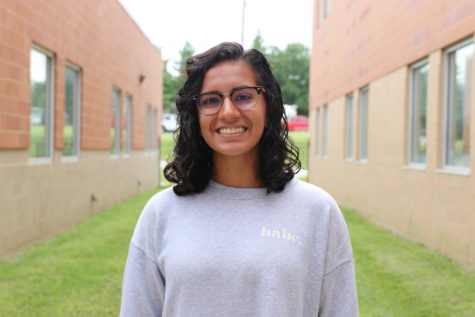
Zara Tola, senior, is copy editor for the Marquette Messenger. Zara can be seen frequently attending Board of Education meetings and community events for...




